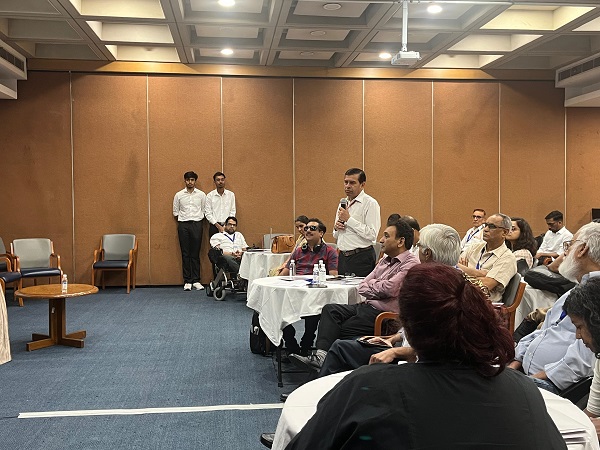CNN Central News & Network–ITDC India Epress/ITDC News Bhopal: A draft curriculum to teach digital accessibility in undergraduate computer science and design courses was unveiled at the Inclusive India Summit, held at the India International Centre, New Delhi, on the occasion of Global Accessibility Awareness Day (GAAD) 2025. The initiative aims to ensure accessibility becomes a core part of how future technologists and designers are trained in India.
The summit brought together academic leaders, accessibility professionals, and disability rights advocates from across the country.
The Inclusive India Summit was hosted on the occasion of Global Accessibility Awareness Day by the Department of Empowerment of Persons with Disabilities (Divyangjan), SBI Foundation (the CSR arm of the State Bank of India), and the National Association for the Blind. It was organised in collaboration with the Association of People with Disability (APD) and Mission Accessibility (Dhananjay Sanjogta Foundation), and held at the India International Centre, New Delhi, on May 15. The event was conducted in hybrid mode, with both online and in-person participation.
The proposed curriculum is a response to a longstanding gap: while digital services have expanded rapidly in India, most platforms remain difficult to navigate for persons with disabilities. A 2023 audit by the Centre for Internet and Society found that 98% of leading Indian websites do not meet global accessibility standards. Globally, the picture is no better; WebAIM’s 2023 analysis of the top 1 million homepages found accessibility errors on 96.3% of them. Experts at the summit agreed that the problem lies upstream, in how technologists and designers are trained.
C.P. Gurnani, former CEO, Tech Mahindra, and a speaker at the summit, said, “India’s digital economy can’t afford to treat accessibility as an afterthought. Embedding it into how we educate our technologists is not just timely—it’s essential. This curriculum is a step toward building digital solutions that are truly inclusive, by design.”
The curriculum, developed over several months by a national working group—including contributors from the International Institute of Information Technology, Bengaluru; Design Beku; Mission Accessibility; Centre for Development of Advanced Computing (C-DAC), India; the Xavier’s Resource Center for the Visually Challenged (XRCVC); Artilabs; and BMS College of Engineering, Bengaluru—is designed to be modular, adaptable, and grounded in Indian contexts. It introduces students to accessibility principles, web standards like WCAG, assistive technologies, universal design, and disability rights law.
Amar Jain, lawyer and Co-founder of Mission Accessibility, who also led the Supreme Court petition, said, “We have policy and precedent. What’s missing is implementation capacity. This curriculum ensures that we’re not just fixing what’s broken—we’re teaching how to build it right from the start.”
The national consultation on Digital Accessibility Inclusion was chaired by Rajesh Aggarwal, Secretary, DEPwD, and had participation from the University Grants Commission (UGC), the Ministry of Electronics and Information Technology (MEITY), Ministry of Housing and Urban Affairs (MOHUA), Ministry of Education, IIT Delhi, IIIT Delhi & IIT Bombay.







